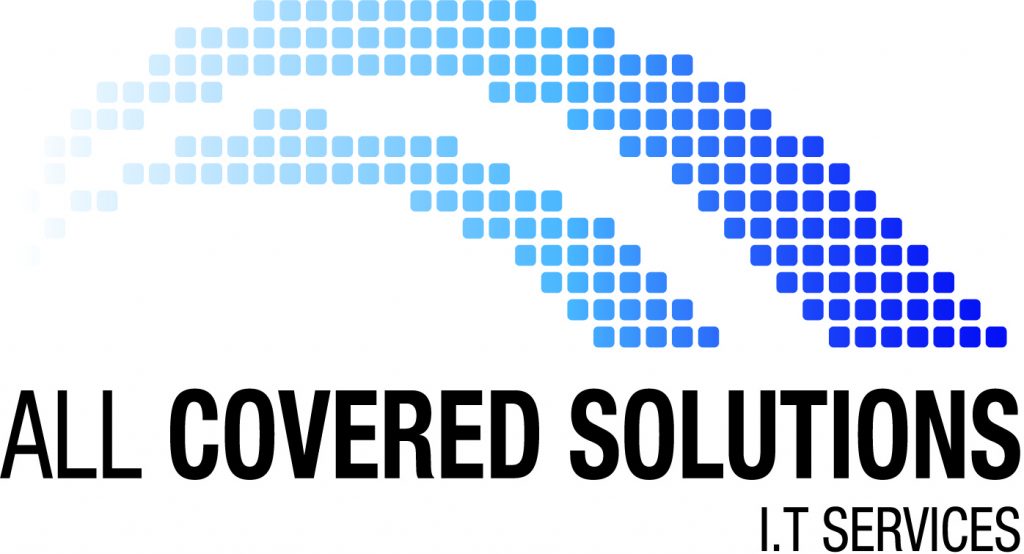How many emails have you received at work today? Email has become a key part of business communication, and without it, I doubt a business could even function! Unfortunately, scammers know this too and a new and insidious threat has been steadily rising: CEO fraud in phishing attacks.
These attacks, often referred to as “whaling” or “business email compromise,” have grown in frequency and sophistication, leaving organisations vulnerable to substantial financial losses and damage to their reputation.
That’s why we are delving into the escalating threat of CEO fraud in phishing, offering insights on how to spot these fraudulent schemes, ways to protect your organisation, and how partnering with “All Covered IT” can provide the peace of mind you need to navigate these treacherous waters.
What is CEO Fraud in Phishing?
At its core, CEO fraud in phishing is a form of cybercrime where malicious actors impersonate high-ranking executives or key decision-makers within an organisation. These cybercriminals employ a variety of tactics to manipulate employees into divulging sensitive information, transferring funds, or taking actions that compromise the security of the organisation
CEO fraud attacks typically involve fraudulent emails that appear to come from a CEO, CFO, or other high-profile executive. These emails often contain urgent requests, confidential information, or seemingly legitimate instructions designed to deceive recipients. As a result, unsuspecting employees may inadvertently follow these instructions, leading to dire consequences for the organisation.
How to Spot CEO Fraud in Phishing
Recognising the signs of CEO fraud is essential to protect your organisation from falling victim to these scams. Here are some key red flags to watch for:
- Unusual Requests for Sensitive Information: Be wary of emails that request sensitive data, financial information, or login credentials, especially if the request seems out of the ordinary.
- Email Domain Irregularities: Check the sender’s email address for slight variations or misspellings. CEO fraudsters often use email addresses that mimic the real executive’s address but with subtle differences.
- Urgent and Confidential Demands: Emails that insist on immediate action and claim to involve highly confidential matters should raise suspicion. Fraudsters use urgency to pressure recipients into complying without thinking.
Verifying Sender Authenticity
To confirm the legitimacy of an email, consider the following steps:
- Double-checking Email Addresses: Hover your mouse over the sender’s email address to reveal the full address. Look for inconsistencies or irregularities.
- Contacting the Alleged Sender Through a Trusted Channel: Instead of replying to the email, use a separate, trusted communication method, such as calling the CEO directly or contacting them through a known and verified email address.
Employee Training and Awareness
One of the most effective defences against CEO fraud is educating your employees about the threat. Implement cyber security training programs that include simulated phishing exercises. These exercises help employees recognise phishing attempts and respond appropriately.
By raising awareness and equipping your team with the knowledge to identify CEO fraud red flags, you can significantly reduce the risk of falling victim to these attacks.
If you are looking for security awareness training for your team, you need to check out KnowBe4! It’s the world’s largest integrated security awareness training and simulated phishing platform and a powerful tool to enhance your organisation’s cyber security posture.
Through engaging training modules and realistic simulated phishing attacks you can address the human element of cyber security, which is often the weakest link in an organisation’s defence.
Protecting Your Organisation
With the knowledge of CEO fraud in phishing and its red flags in mind, it’s essential to take proactive steps to safeguard your organisation against these attacks. Here are some key strategies:
Implementing Strong Security Measures
When it comes to bolstering your organisation’s security against CEO fraud in phishing attacks, there are key measures you should consider. Multi-factor Authentication (MFA) is an essential tool. By enforcing MFA for accessing sensitive systems and email accounts, you add an extra layer of security that demands multiple forms of verification. This means even if a cybercriminal manages to obtain a password, they won’t be able to access accounts without the second factor, which could be a fingerprint, token, or smartphone authentication.
Investing in advanced Email Filtering and Anti-Phishing Software is another crucial step. These solutions act as your first line of defence by automatically detecting and blocking suspicious emails before they even reach your employees’ inboxes. By proactively filtering out phishing attempts, you significantly reduce the chances of falling victim to CEO fraud schemes.
Looking for a platform that puts security first? The best place to start is Microsoft 365 Business Premium!
Microsoft 365 Business Premium provides advanced threat protection, multi-factor authentication, and data loss prevention, ensuring a secure environment by safeguarding against cyber threats and controlling access to sensitive information across devices and applications.
Establishing Strict Protocols
Authorisation Processes for Financial Transactions are vital in preventing fraudulent transfers. By implementing rigorous approval processes, especially for financial transactions, you ensure that any requests for fund transfers or financial information undergo thorough verification. This can include requiring multiple levels of approval or utilising secure channels for such requests.
Additionally, it’s important to encourage employees to actively participate in the security of your organisation. Encourage them to Document and Verify any unusual or sensitive requests they receive through email, particularly those involving confidential information or financial transactions. This practice helps create a culture of vigilance and accountability within your organisation.
Developing an Incident Response Plan
No security strategy is complete without a well-defined Incident Response Plan. In the event of a CEO fraud attack or any cyber security incident, a detailed plan outlining specific actions is essential. This plan should include immediate steps to mitigate damage, recover compromised assets, and involve relevant authorities if necessary.
Furthermore, establishing clear Communication and Reporting Procedures is critical. Ensure that all employees are aware of whom to contact when they encounter a potential threat. By streamlining reporting channels and making them readily accessible, you enable swift responses to emerging threats, minimising potential harm to your organisation.
Why You Should Partner with a Managed IT Service for Peace of Mind
In today’s fast-paced digital landscape, the need for robust cyber security and reliable IT support has become paramount for organisations across various industries. Partnering with a Managed IT Service Provider offers numerous benefits that can enhance your peace of mind and the overall efficiency of your operations.
The Expertise You Need
Managed IT Service Providers bring a wealth of expertise to the table. Their teams are well-versed in the latest cyber security threats, technology trends, and best practices. By leveraging their knowledge and experience, you can ensure that your organisation remains protected against evolving cyber threats such as CEO fraud in phishing. These experts can assess your unique needs and tailor solutions to mitigate risks effectively.
Proactive Security Measures
Cyber threats are constantly evolving, making it challenging for organisations to keep up. Managed IT Service Providers are equipped with the latest tools and technologies to implement Proactive Security Measures. They can identify vulnerabilities, apply patches, and implement robust security protocols to safeguard your systems and data. This proactive approach minimises the likelihood of falling victim to CEO fraud or other phishing attacks.
Focus on Core Operations
Partnering with a Managed IT Service Provider allows your organisation to Focus on Core Operations. Instead of diverting valuable time and resources toward managing IT and security concerns, you can concentrate on strategic initiatives that drive your business forward. This enables you to remain competitive and agile in today’s dynamic business environment.
Cost-Efficiency
Managed IT services often offer Cost-Efficiency by providing predictable monthly expenses. This eliminates the need for significant upfront investments in technology and cyber security infrastructure. Additionally, you can avoid the costs associated with hiring and training in-house IT staff, ultimately saving your organisation money.
All Covered IT is the technology division of Document Solutions Australia.
Since 2001, the Doc Sol team have built strong business foundations and corporate relationships that reach into business communities throughout the Gold Coast region.
All Covered IT brings the same bullet-proof service reputation with a wealth of knowledge and experience you can rely on. From wholly managed IT service to software, hardware and high-quality cyber security, we’ve got you all covered.
Closing Thoughts
CEO fraud in phishing attacks is a rapidly escalating threat that can have devastating consequences for organisations. By educating your employees, implementing robust security measures, and partnering with “All Covered IT,” you can fortify your defences and minimise the risk of falling victim to these insidious scams. In an era where cyber security is paramount, safeguarding your organisation is not just an option; it’s a necessity.
Stay vigilant, stay secure, and let “All Covered IT” be your trusted partner in the ever-evolving battle against cybercrime.







